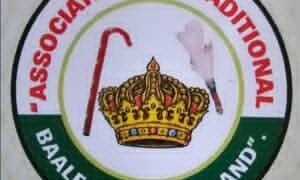There is a quiet but deadly war being waged across Nigeria—one not fought with guns, but with counterfeit products, fake foods, and poisonous drugs. From bustling cities to remote villages, the Nigerian consumer is under siege. What makes this war even more tragic is that the very institution saddled with defending the public—NAFDAC (National Agency for Food and Drug Administration and Control)—has become too complacent, too comfortable, and sadly, too ineffective.
This is a clarion call: NAFDAC, your best is not enough.
The agency that once inspired national confidence under the late Professor Dora Akunyili is now a pale shadow of itself. While fake goods continue to flood the markets and slums become breeding grounds for criminal manufacturing rings, the agency appears trapped behind office desks, press releases, and sanitized public relations. It is time to step out and step up.
The Ugly Truth: Counterfeit Products Are Everywhere
From Onitsha in Anambra to Agbeni and Ogunpa in Ibadan, from the corners of Ogbomoso to the congested markets of Lagos, Kano, Jos, Kaduna, and beyond, the situation is the same: nearly every household product, consumable, or medication has a counterfeit version.
Children’s biscuits, sweets, juices, and baby foods—adulterated and sold in deceptively familiar packaging.
Sachets of alcohol and small bottled spirits—counterfeited with methanol-laced formulas and sold on street corners.
Medications and herbal concoctions—manufactured in open drains and slums, with zero hygiene or scientific accuracy.
The situation has become so normalized that entire factories, hidden deep in Nigeria’s urban slums, now run round-the-clock producing fake versions of established brands. What started as an organized crime linked primarily to the Eastern corridor has now spread nationwide, becoming a fast-growing industry for criminals across the nation.
This is not speculation. It is fact—and the daily lived experience of millions of Nigerians.
A National Health Emergency
The consequences are dire and widespread. The effects of consuming fake products are slowly killing the nation:
Liver damage, kidney failure, cancer, high blood pressure, and hormonal disruption are increasingly being linked to the consumption of toxic substances hidden in counterfeit goods.
Hospitals are overwhelmed with patients whose organs are shutting down—not because they abused substances, but because they unknowingly consumed contaminated or fake products sold legally on store shelves and roadside stalls.
What exactly is NAFDAC doing? Where are the surveillance mechanisms? Where are the routine factory inspections? Where is the aggressive enforcement Akunyili once led that took agents into the dark corners of the nation?
The Comfort Zone Must End
The time for boardroom meetings, commissioned reports, and photo-ops is over. The time for action is now.
NAFDAC must be challenged to:
Go into the slums, the ghettoes, and inner markets where the real crime is happening. These fake product factories are not hidden in skyscrapers—they operate in unregulated backyards and abandoned buildings.
Launch state-by-state crackdown units, equipped and trained for covert operations, capable of dismantling illegal production chains and exposing their funders.
Set up mobile testing labs to test products on-site in markets and schools.
Work with whistleblowers and offer protection and incentives for insiders ready to expose the networks.
Name and shame complicit businesspeople and distributors, regardless of political connections or tribal affiliations.
Anything short of this is complicity.
Erosion of Akunyili’s Gains: A Call for Reckoning
Let us speak plainly: the gains of Dora Akunyili’s era have been eroded. Her name lives on, but her legacy has been trampled by indifference and weak leadership. The courage that once saw fake drug lords brought to justice has been replaced by a system that looks the other way until a social media outcry forces a reaction.
Dora Akunyili did not sit in air-conditioned offices issuing warnings. She was in the streets, raiding warehouses, risking her life, and standing between the people and death. She taught us that public service must be fearless, visible, and grounded in the realities of the masses.
Every NAFDAC DG since her passing must ask themselves: What would Dora do today? And more importantly, What am I doing differently?
A Challenge to the Current Leadership
NAFDAC leadership, this is not just a critique—it is a challenge. You have the tools. You have the mandate. You have the public trust—though dwindling—and you have a duty to act.
We demand the following:
1. Public accountability reports every quarter on operations against counterfeiters.
2. A nationwide cleanup plan, targeting hotspots known for fake goods production.
3. A whistleblower platform with guaranteed anonymity and legal protection.
4. Real-time product verification systems for consumers to check authenticity.
5. Engagement with local vigilante groups and community leaders to track and report illegal factories.
The time to rise in defence of the Nigerian people is now.
—
Conclusion
The cost of inaction is measured in the lives of babies fed poisonous biscuits, young men drinking toxic gin, mothers dying from fake blood pressure medication, and families impoverished by the health consequences of counterfeit goods.
NAFDAC cannot afford to continue business as usual. The criminal empires producing these fake products are getting bolder, richer, and more networked. It is time to dismantle them with equal aggression, intelligence, and political will.
The people are watching. History is recording. And the ghosts of those who died from fake drugs are still crying for justice.
NAFDAC, the streets are calling. Will you answer?













